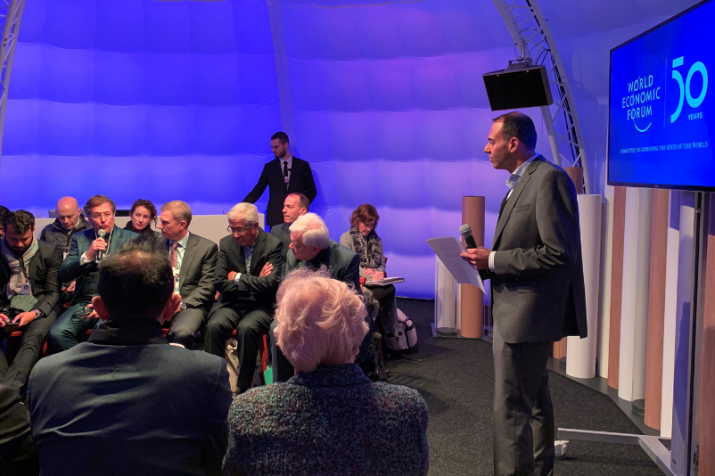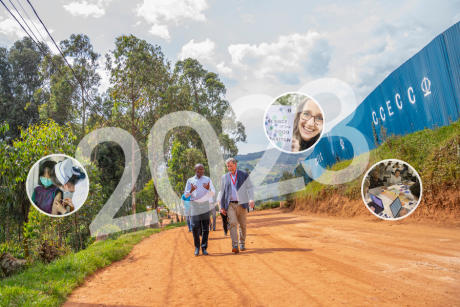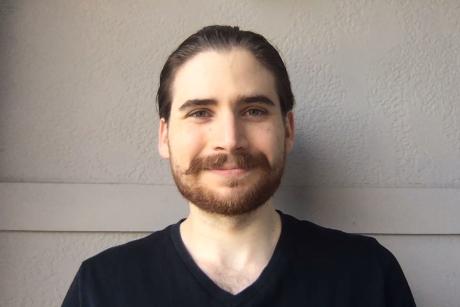
Krishna Udayakumar, associate professor of global health and medicine at Duke and director of the Global Health Innovation Center, attended the World Economic Forum Annual Meeting in Davos, Switzerland, in January. Photo by Meera Udayakumar.
Published February 7, 2020, last updated on March 29, 2020 under Research News
Global CEOs, heads of state and celebrities hobnobbing on the ski slopes and in cozy chalets. Those may be the first images that come to mind for many when imagining the World Economic Forum’s (WEF) Annual Meeting in Davos, Switzerland.
Yet some of the most impactful and timely initiatives in global health have emerged from this forum, from the launch of Gavi, the Vaccine Alliance, 20 years ago to the more recent creation of the Coalition for Epidemic Preparedness Innovations (CEPI). Both of these ventures, and many others incubated or supported by the World Economic Forum, continue to support pressing health needs around the world.
For the past 10 years, Duke Health has been a member of the World Economic Forum, positioning Duke to bring leading public and private sector stakeholders together around a range of healthcare issues. In fact, Innovations in Healthcare, a Duke-hosted nonprofit that I lead, was incubated through the World Economic Forum and launched at Davos in 2011.
I had the opportunity to again attend the WEF Annual Meeting in Davos in January. Attending the conference can be surreal: You’re walking around in freezing temperatures, bumping elbows with celebrities such as Yo-Yo Ma, who was there to play Bach and discuss how culture connects us globally, or will.i.am talking about his I.AM+ artificial intelligence platform. But it is always incredibly productive, full of important discussions and decisions impacting global health.
Innovations in Healthcare partnered with Takeda and Medtronic to lead a discussion titled Leaving no patient behind: Delivering UHC 2030 via public-private partnerships. Attended by leaders across industry, think tanks, academia, nonprofits and government agencies, the session identified critical opportunities for stronger partnership to achieve global health impact, including more ways for companies to work together rather than compete.
The discussion also highlighted the value of universities to serve as trusted third parties to bring together unconventional coalitions of actors focused on building capacity in low- and middle-income countries. Building from this work, Innovations in Healthcare will soon launch a new Global Coalition for Access to Health. This multi-stakeholder consortium will champion efforts to design, implement and measure sustainable, impactful industry global health programs that effectively engage public and private sector resources and partners.
Several sessions in Davos focused on the immense global need for mental health care and potential solutions, including the launch of the Healthy Brains Financing Initiative, a joint effort of OneMind and the National Academy of Medicine. The meeting also highlighted the very real threat of emerging infections and how building coalitions proactively enables quick action, such as CEPI's announcement at Davos of new programs to urgently develop vaccines against the novel coronavirus, 2019-nCoV.
My time in Davos this year reaffirmed the value of engagement and partnerships to drive action. It also highlighted the unique and privileged position that Duke holds as an institution engaged at the highest levels across public and private sectors in its efforts to connect with the world to improve health globally.

